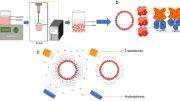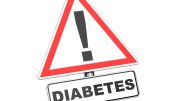
Research reveals that individuals with post-COVID syndrome often suffer significant physical impairment up to 20 months after infection. Patients diagnosed with myalgic encephalomyelitis/chronic fatigue syndrome (ME/CFS) particularly remain severely affected.
Charité study tracks patients with pronounced fatigue over 20 months.
A new study has found that many people with post-COVID syndrome who suffer from fatigue six months after a coronavirus infection are still severely physically impaired up to 20 months afterward. The vast majority of patients who develop myalgic encephalomyelitis/chronic fatigue syndrome (ME/CFS) remain severely ill, with no change. By contrast, patients with similar symptoms who do not meet the diagnostic criteria for ME/CFS experience gradual improvement in their symptoms.
Patients who still have health problems three months after a SARS-CoV-2 infection, with symptoms ongoing for at least two months and no other explanation for these issues, are said to have post-COVID syndrome (PCS), also known as “long COVID.”
Symptoms vary widely. Many people have problems with breathing, trouble concentrating, or little to no stamina. A large portion of people with PCS complain of fatigue that barely improves with normal rest and recovery. In many cases, these people struggle to cope with daily life, and even slight exertion exacerbates their condition, a phenomenon known as exertion intolerance. This situation is significantly more common in women than men.
Patients and others are naturally wondering how long these symptoms will persist. Findings from a number of studies are now available for the initial few months following infection. According to this research, recovery generally takes longer the more severe the initial infection was. Many people – but unfortunately not all – see symptoms improve within a year. The long-term progression of the illness in these patients has been unclear so far.
Examining Severe Fatigue Post-COVID
The study that has just been published focuses on people who still suffer from severe fatigue and exertion intolerance six months after contracting SARS-CoV-2. In contrast to studies based solely on patients’ descriptions of their symptoms, this study involved a comprehensive medical examination on the 106 participants – most of them women – at three points in time at several-month intervals.
“Unfortunately, our data show that people with post-COVID syndrome who have severe fatigue are still ill more than a year and a half after the initial infection,” says Dr. Judith Bellmann-Strobl, the study’s last author and a senior physician with the Neuroimmunology Outpatient Clinic at the Experimental and Clinical Research Center (ECRC), a joint institution of Charité and the Max Delbrück Center. “Only half of them – the half that do not present with the full range of symptoms of ME/CFS – experience gradual improvement in at least some symptoms.”
Distinguishing Fatigue Types in PCS Patients
Researchers had observed last year that long COVID sufferers with severe fatigue and exertion intolerance fall within two groups. Some of the patients meet the diagnostic criteria for ME/CFS, a complex neuroimmunological disease with the key symptoms of severe fatigue, exertion intolerance, and post-exertional aggravation of symptoms that can lead to physical disability. Patients in the second group experience similar symptoms, but their post-exertion symptoms are generally milder and do not last as long.
The new study shows that the latter group experiences some improvement over time, not only in fatigue, but also in terms of general malaise, pain, and concentration problems. These people’s functional ability often improved, and some of those studied were even able to return to work. By contrast, post-COVID patients with ME/CFS saw barely any change in their symptoms. There were very few exceptions.
“Seven of the 55 patients with ME/CFS experienced improvement in their physical impairments,” Bellmann-Strobl explains. “But we still don’t have an explanation for this, and we haven’t been able to identify any medical commonalities.”
Grip Strength: A Potential Indicator?
Another observation made in the study may be useful going forward in gauging how post-COVID syndrome will progress in people who meet the diagnostic criteria for ME/CFS: The stronger these patients’ grip strength was at the start of the disease, the less severe their symptoms were up to 20 months later.
“Grip strength was not only a parameter for how severe the disease was to start with, but also a predictor of how ME/CFS would progress,” explains Prof. Carmen Scheibenbogen, Acting Director of the Institute of Medical Immunology at Charité and the head of the Charité Fatigue Center. She and Bellmann-Strobl were the principal investigators in the study. “Before we can use grip strength as a prognostic factor, though, we need further studies to confirm how meaningful it is,” Scheibenbogen points out.
“The WHO puts the number of people living with long COVID in Europe at about 36 million right now. Most of them experience impairments in daily life, and many can no longer lead a normal life at all,” she explains. “Even before the pandemic, there were an estimated three million people with ME/CFS in Europe, and the data we now have suggest that there are now twice that number due to the pandemic. Our study shows that most people with ME/CFS remain severely ill. In addition to ramping up our efforts to find effective therapies, this means we also need to quickly establish healthcare facilities where patients can receive multidisciplinary care based on current scientific findings and clinical experience.”
In the absence of treatments that do more than just alleviate symptoms and instead, go to the root cause of post-COVID syndrome and ME/CFS, Bellmann-Strobl’s main recommendation for patients is to pace themselves so they do not exhaust their energy reserves and not to overexert themselves. Tools that can help with this include fitness trackers or pedometers, heart rate monitors, activity journals, and relaxation exercises.
“Pacing can prevent post-exertional malaise, a worsening of the person’s condition. The better patients do with pacing, the less severe their symptoms. People should be very careful in feeling out their limits in terms of exertion. Professional guidance can help to prevent overexertion.”
Reference: “Long-term symptom severity and clinical biomarkers in post-COVID-19/chronic fatigue syndrome: results from a prospective observational cohort” by Franziska Legler, Lil Meyer-Arndt, Lukas Mödl, Claudia Kedor, Helma Freitag, Elisa Stein, Uta Hoppmann, Rebekka Rust, Kirsten Wittke, Nadja Siebert, Janina Behrens, Andreas Thiel, Frank Konietschke, Friedemann Paul, Carmen Scheibenbogen and Judith Bellmann-Strobl, 18 August 2023, eClinicalMedicine.
DOI: 10.1016/j.eclinm.2023.102146









Honestly, if you have ME/CFS with or without connection to PCS, it will absolutely destroy your life. There is nothing that Americans love more than judging other people – if you can’t work because “you’re too tired” or “your energy is gone”, expect to be labeled as a person who is *LAZY* and *UNMOTIVATED*. So many of the able-bodied immediately assume that everyone should be just like them and there’s simply no excuse for whining about fatigue.
I’m a single parent trying to raise 3 teens, all of them with some level of neurodivergency, and I have hEDS together with ME/CFS. My care comes through the VA, another organization that is too underfunded and overrun to do much for little nobodies like me. All too often, the only thing I can do when I’m unable to perform the tasks I’m required or expected to undertake but cannot handle, is to lie down and blame myself.
There is no help out there. No one will say, “Oh, you poor dear, pace yourself, and see if there are any programs willing to assist you with your living situation!” The government says I still LOOK okay, so I don’t qualify for disability, despite a boxful of doctors’ reports stating otherwise.
Get a job. Pull yourself up by your bootstraps. Don’t expect handouts or sympathy if you won’t help yourself.
There’s an entire subculture out here that just wishes that people, at least some of them, would try to understand, and help change the world into a place where we can take care of each other to some degree. I don’t want to live like this – it isn’t really living at all. I’m not intentionally lazy, neither are the others suffering with these devastating issues.
Please.. try to understand that what you see may not be how it is. Be patient, be kind and help someone that looks like they might need it.
Isn’t it great to be judged by someone else’s ignorance?